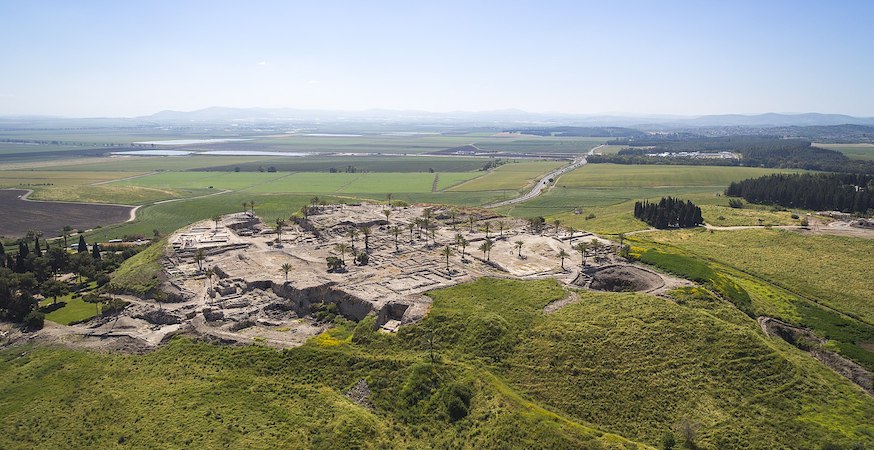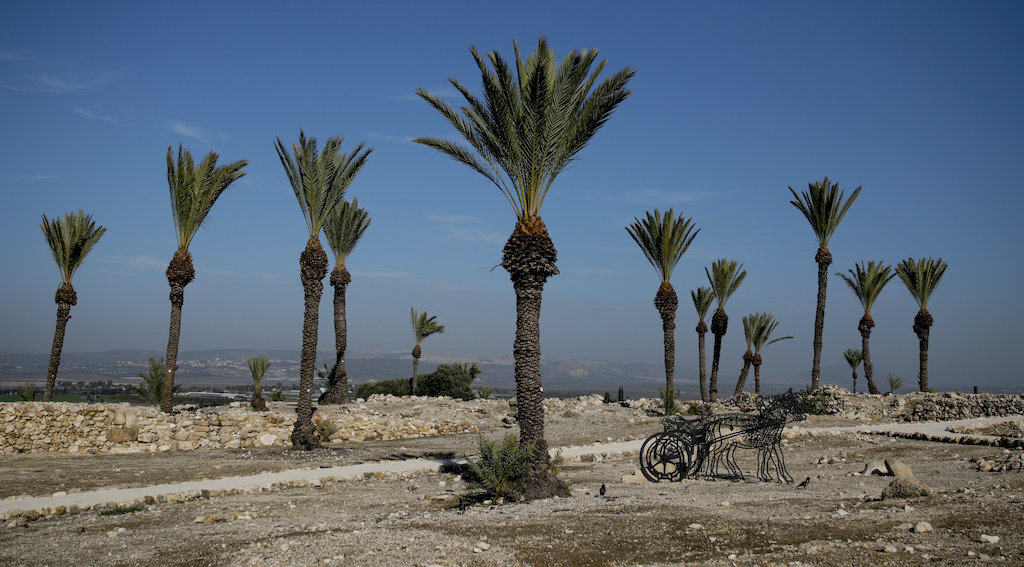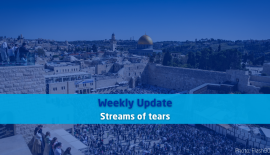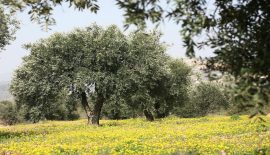Valley of Armageddon
Just hearing the name can make you sober, even shiver: Armageddon. One thinks of the last end-time battle with bloodshed up to the horses’ bridle. If you want to understand your Bible better and get the most from a future holy land tour, you need a good introduction to what we call ‘The Valley of Armageddon.’ It is a must-see site in any Biblical itinerary.
The valley has various names: The Central Valley, tucked in the north, sandwiched between Samaria, Carmel, and Lower Galilee. Other names include Valley of Jezreel, a term used only three times in Scripture (Joshua 17:16; Judges 6:33; Hosea 1:5). Esdraelon and Valley of Armageddon are not found in the Bible but in extra-Biblical literature. Yet these terms all refer to the same place: The Valley (Hebrew: ha emek).
“‘The Valley of Armageddon.’ It is a must-see site in any Biblical itinerary”
The valley has rich alluvial soil that washes from the mountains of Galilee, Samaria, and Mount Carmel. Annual rainfall is 500mm or 20 inches, with the hills getting 700mm. Travel through the winter is muddy but during the warmer seasons, you can grow barley and wheat, as well as oranges, white beans, watermelon, melon, chickpeas, green beans, cotton, sunflowers, corn, and grazing for cattle and sheep.
Think of The Valley as an arrowhead pointed NW-SE. There are five passes in and out, with the Via Maris or Afro-Eurasian international highway (more like a dirt road), running right through it. That means trading caravans and conquering armies were familiar with this valley either travelling to Egypt or Mesopotamia.
The Valley’s strategic location was even more important than its agricultural output. The tribes of Zebulon, Manasseh, and Issachar were allotted part of The Valley, but it eluded their grasp until the time of David.
The narrow neck of the arrowhead is often called the Jezreel Valley. To the south of the ‘arrow neck’ is Mount Gilboa.
Contained in the ‘arrow’s neck’ are the cities of Beth Shean and Jezreel, plus the Spring of Harod. Jezreel means ‘God sows.’
North of the ‘arrow neck’ is Mount Moreh (Judges 7:1), which houses three Biblical villages:
- Shunem: Home of Abishag, David’s last woman (1 Kings 1:3, 15) and Elisha’s hospitable hostess, the unnamed Shunammite woman (2 Kings 4:8-11).
- En Dor: Saul visited the witch here on the eve of his ill-fated battle (1 Samuel 28:7-25).
- Nain: Where Jesus raised to life, the widow’s son (Luke 7:11-16).
The actual arrowhead is sparsely populated but contains the modern city of Afula, ‘Capital of The Valley’ with a population of 54,000. Further west is the archaeological site of Megiddo, one of Solomon’s chariot cities (1 Kings 9:15), which guarded The Valley entrance.

Megiddo, or Tel Megiddo, is the site of an ancient city in northern Israel’s Jezreel valley. It is believed to be the place where the battle of Armageddon will be fought. The picture shows an aerial view of Tel Megiddo. Photo by Itamar Grinberg.
It is from Megiddo that we get the name ‘Armageddon’ (Har Megiddo or mountain of Megiddo). Please note that Megiddo is not a ‘mountain,’ it is an archaeological tell (man-made hill) in the great valley. Right next to it westward is the Mount Carmel, which is actually a mountain range, rather than a single-peak.
“This strategic valley has been the scene of around 200 battles throughout its long history, of which only a few are recorded in the Bible.”
An Eventful Place
This strategic valley has been the scene of around 200 battles throughout its long history, of which only a few are recorded in the Bible. It is one of the most bloodstained battlefields in the world. Consider some of the Biblical events, including battles, that occurred in The Valley:
- Deborah and Barak: Their great victory against Jabin king of Canaan and his general Sisera happened at Mount Tabor (Judges 4).
- Gideon: The menacing Midianite forces numbered 135,000 and wreaked havoc in Israel. The Spring of Harod, where Gideon’s 300 mighty warriors were identified, helped Israel defeat the ‘children of the East’ in Judges 7.
- Saul’s Defeat (1 Samuel 31:1-6): The disastrous campaign at Mount Gilboa between Israel and the Philistines happened in The Valley. Saul consulted with the witch at En Dor the night before. His untimely death occurred on Mount Gilboa itself, and his decapitated body was temporarily hung on the wall of nearby Beth Shean.
- Elijah and the Prophets of Baal: After his stunning victory on Mount Carmel, Elijah took the 450 prophets of Baal and slew them at the Brook Kishon (1 Kings 18:40), also in The Valley near Carmel.
- Naboth’s Vineyard (1 Kings 21): Located by Ahab’s winter palace in Jezreel. Naboth refused to sell his vineyard to the covetous king. Thanks to Jezebel, he signed his own death warrant. This murder and theft would be avenged in due course.
- Death of Jehoram and Jezebel (2 Kings 9): In fulfilment of Elijah’s prophecy, newly anointed king Jehu slew Jehoram king of Israel at Jezreel. He also got the eunuchs to throw Jezebel out of the window, and she met a grizzly death, as prophesied.
- Josiah Slain: Good king Josiah of Judah confronted Pharaoh Necho and was slain at Megiddo (2 Chronicles 35:20-24).
- Battle of Ain Jalut 1260 AD: One of the most important battles in history. The Mongols were building the world’s largest empire by brutal conquest. Until Ain Jalut, they had known only victory. Yet, right here in The Valley near the Spring of Harod, they met with their first defeat at the hands of Baibars, the Mamluk sultan.
- Other battles in The Valley: Napoleon defeated the Ottomans in 1799, and the British fought the Turks and Germans during World War I.
What about Armageddon?
This is a big topic, and we only have a short space. In summary, Revelation 16:16 speaks of Armageddon as a ‘gathering place’ – not a battlefield. After ‘the gathering of the troops,’ the battle is probably elsewhere. Where? Afula? No, Jerusalem (Joel 3:1-2; Zechariah 12:2-14; 14:2-4). Once Christ intervenes, the game is up and the world’s kingdom becomes the (visible) Kingdom of God (Revelation 11:15).
Whatever your eschatology, make sure to go Israel’s north and see The Valley, which has caught the world’s imagination.






